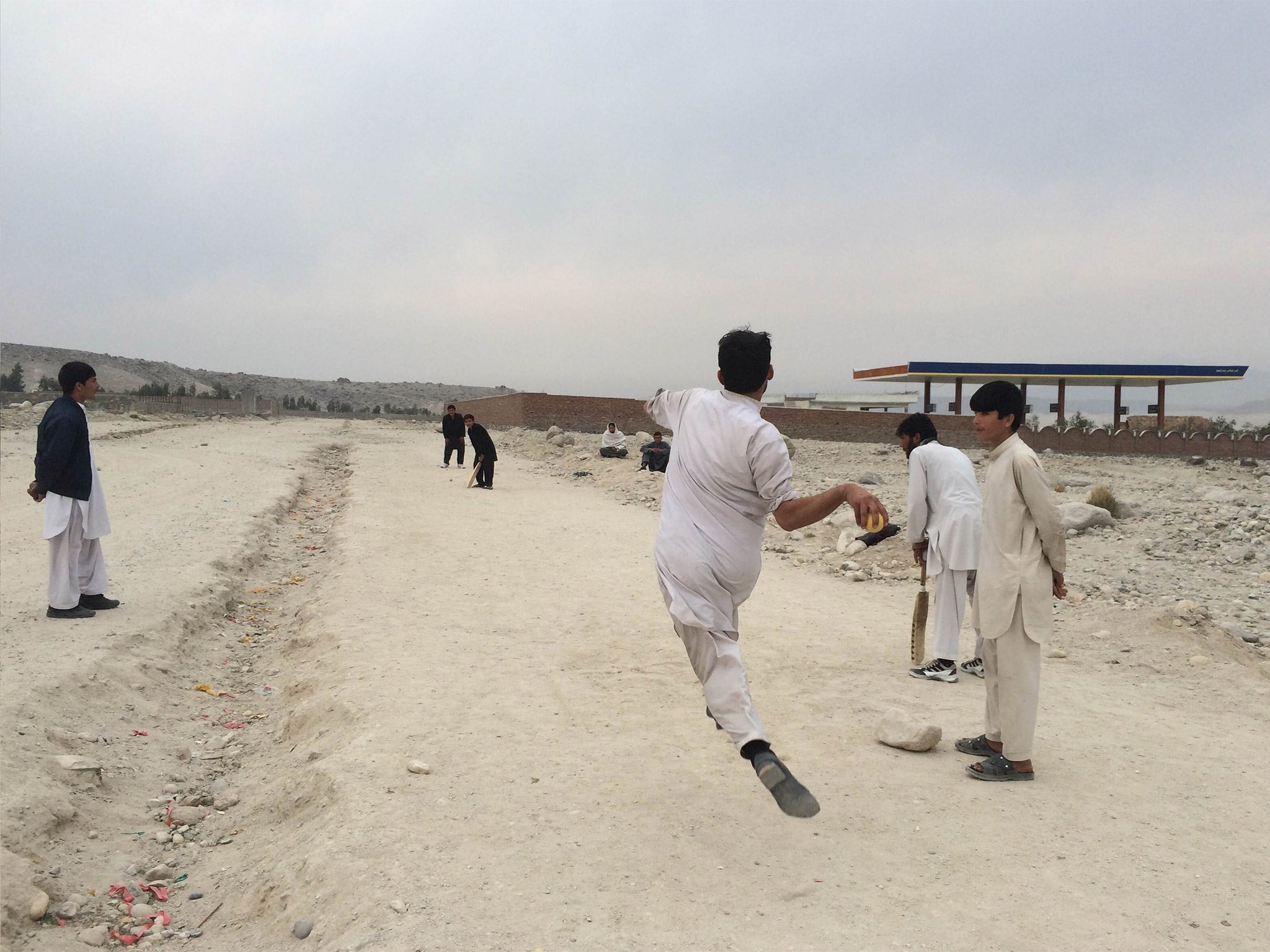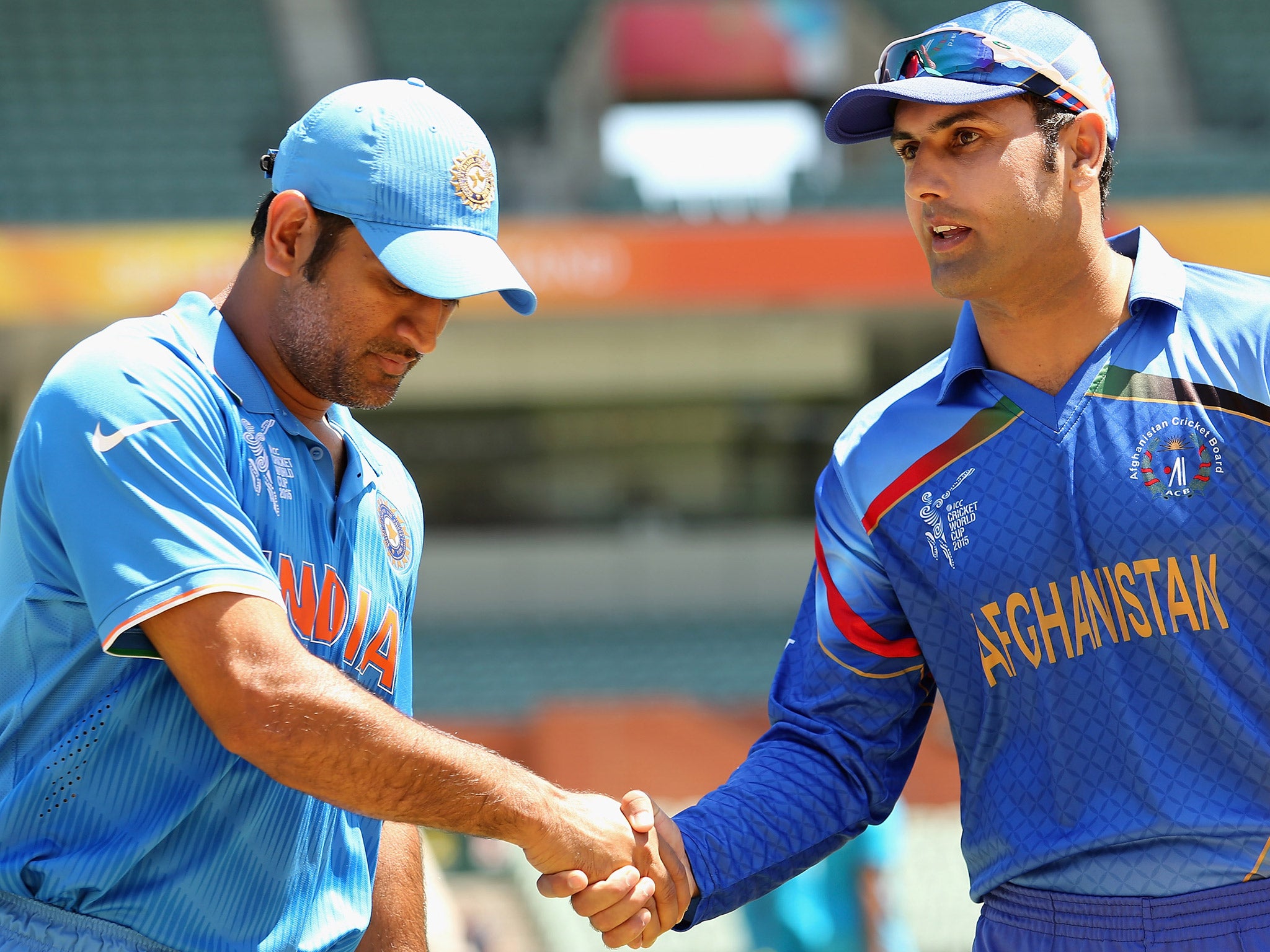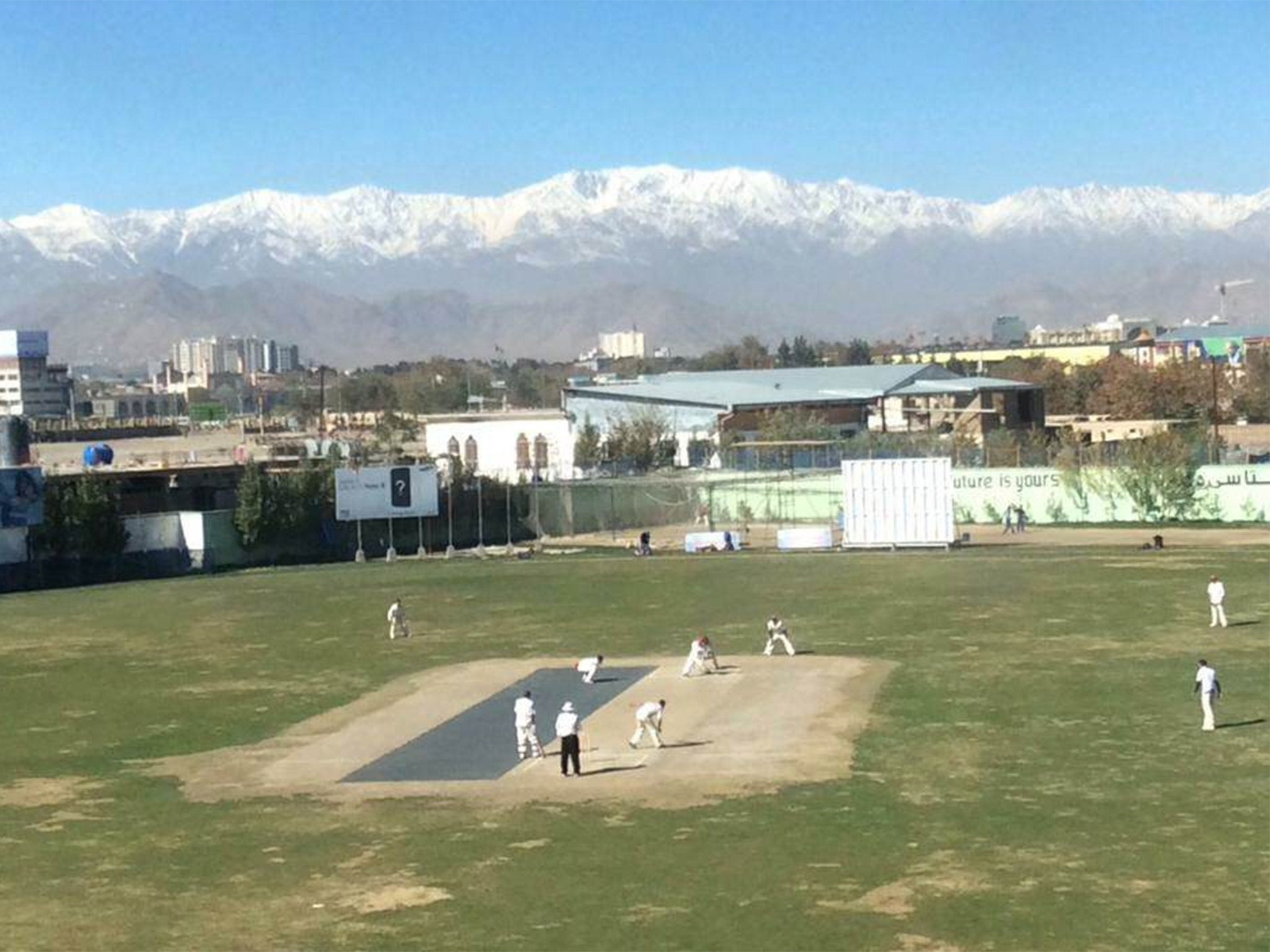Cricket World Cup 2015: Afghans come together to support their team as the nation makes its ICC debut
Tournament sees cricket transcend ethnic and tribal divisions in the war-ravaged country

Your support helps us to tell the story
This election is still a dead heat, according to most polls. In a fight with such wafer-thin margins, we need reporters on the ground talking to the people Trump and Harris are courting. Your support allows us to keep sending journalists to the story.
The Independent is trusted by 27 million Americans from across the entire political spectrum every month. Unlike many other quality news outlets, we choose not to lock you out of our reporting and analysis with paywalls. But quality journalism must still be paid for.
Help us keep bring these critical stories to light. Your support makes all the difference.
A diesel-fired portable generator sits in pride of place on a wooden table in the compound of Haji Abdul Tanai’s mud house.
A motley crowd of inquisitive children watches intently as he goes about what has become his daily routine since he bought this used generator for $250 (£165) from a shop in Kabul, 15 miles away.
Through his thick spectacles, Mr Abdul checks the oil and coolant levels of the generator, cleans the terminals and inspects the wires. “I don’t want anything to go wrong,” says the 60-year-old, wiping black stains of grease off his palms.
The generator, Mr Abdul’s most prized possession, will be put to the test today in his village, Ahmazazai, when Afghanistan makes its ICC Cricket World Cup debut against Bangladesh in Canberra, Australia.
With the electricity supply erratic and power cuts long and unplanned throughout most of the country, no one in the village – as in much of Afghanistan – is taking any chances. “We don’t want to miss the match. The whole village is banking on this generator,” Mr Abdul told The Independent.
Its electricity will power his neighbour Haji Mohammad’s newly installed satellite dish and the attached television. “The entire village will gather to watch the match,” said Mr Mohammad. “Arrangements are being made so that everyone enjoys the game.” He pointed to a pile of worn-out mats, collected from around the village and haphazardly thrown down by the low boundary wall. “Children will sit on rugs, men on plastic chairs and women on wooden cots behind a makeshift veil. It will be a visual feast.”

The preparations in this village near Kabul reflect the mushrooming interest in cricket in Afghanistan over the past few years. The game has done to this war-ravaged nation what repeated government attempts failed to do – it has blurred ethnic and tribal fault lines, evoked a sense of national pride, and given the people hope and a reason to cheer.
“For once, people are talking of Afghanistan as a nation,” Mohammad Nabi Eisakhil, captain of Afghanistan’s World Cup squad, said minutes before departing for Australia. “This isn’t just a game, this isn’t just about winning, it’s about bringing joy to a shattered nation, it’s about bringing the people together. We are carrying dreams on our shoulders.”
Eisakhil’s words have a deep resonance and carry a message far beyond the pitch for which he is about to pad up. For cricket has not only brought Afghanistan together; it has, at least for now, dissolved the bitterness that came to define relations between Afghanistan and neighbouring Pakistan.
Cricketers and enthusiasts of the game in Afghanistan gratefully acknowledge the role of Pakistan, where the journey of Afghan cricket began in the 1990s.
At that time, most of the current crop of Afghan sporting heroes was living in refugee camps in Pakistan, having escaped the civil war and tyranny of the Taliban that had banned cricket back home.
While there, it was difficult for Afghan youngsters to overcome Pakistan’s national obsession with the game, which would often acquire manic proportions, especially when the country played its traditional rival India.
“Whenever Pakistan won a cricket match against India, there would be spontaneous celebrations in the streets,” recalls Mohammad Sami, a Kabul resident who lived in a refugee camp in Pakistan in the 1990s.
“Revellers would beat drums, burst crackers, ride on top of cars shouting slogans in praise of their heroes. Afghan refugees like me would also join such victory parades.”

Cricket fever has now touched a similar high in Afghanistan. While people like Mr Abdul and Mr Mohammad have pooled their limited resources to make the most of the 44-day cricket extravaganza, merchants and businessmen have arranged for matches to be shown on big screens being erected in town squares and provincial capitals. “I’m going to be allowing people to watch the game on a huge screen in Jalalabad city,” said Haji Zarjan, a trader in dried fruits.
Keeping up with the tempo, some local traders have announced cash rewards for players who excel in the tournament – a Kandahari property developer, Munir Khan, has promised to give batsman Asghar Stanikzai $10,000 (£6,500) if he scores a century against Bangladesh, while Shamim Katawazi, a trader from Paktika, has promised $10,000 to any Afghan bowler who gets five wickets in a match.
Dealers of electrical goods in Kabul say sales of generators, televisions and satellite dishes have boomed in the run-up to today’s match. “I’ve sold 50 television sets in the last two weeks compared with five or six a month before January,” said Janbaz Khan, who owns a shop in Kabul’s Electric Avenue market.
The Afghan security forces and the Taliban, too, seem to be consumed by the cricket frenzy. A senior Afghan official told The Independent that the two sides had agreed in back-channel talks to observe “unofficially” a ceasefire on days when the Afghan cricket team is playing.
Shah Jahan, an Afghan National Army commander in the south-eastern province of Paktika, summed up the mood: “If we don’t fight, we, too, can enjoy the game.”
Subscribe to Independent Premium to bookmark this article
Want to bookmark your favourite articles and stories to read or reference later? Start your Independent Premium subscription today.
Join our commenting forum
Join thought-provoking conversations, follow other Independent readers and see their replies
Comments